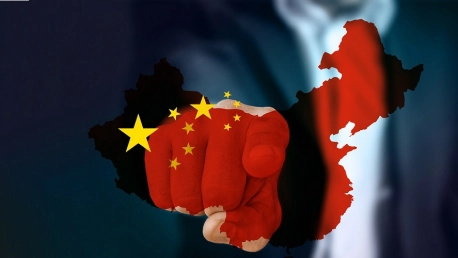China’s Communist Party outlined a 5-year plan to bring tech companies under control while keeping up appearances. Several measures implemented by the regime led by Xi Jinping have fueled fears about the future of innovation in the world’s second-largest economy. Let’s see why and how China tries to keep in check capitalist enthusiasm among its companies.
Economic Dissidents Are Challenging Government Policies
After Jack Ma, CEO of Alibaba Group, and other individuals associated with China’s tech giants, showed signs of dissent by publicly challenging some of the policies set out by the Communist Party of China (CPC), the regime orchestrated the—at least temporary—“disappearance” of these figures, ensuring that their reappearance in public is humble and accompanied by denials of any previously expressed positions, while showing unconditional support for the CPC.
Sensing a much wider potential for dissent from tech giants, the Chinese Communist Party has pre-emptively launched an offensive to bring under much tighter control any company that might be inclined to defy Beijing’s power. This is basically the entire technology sector, encompassing cutting-edge areas such as artificial intelligence, big data, public health, finance, the internet, and cloud computing.
Data privacy issues and the breaking of any monopolies not directly associated with the CPC are particularly targeted, followed by antitrust investigations and crackdowns on private companies—especially those controlled by foreign interests, that are not fully aligned with the party policies. At the same time, laws on foreign nationals operating in China will be revised.
According to the official narrative, China is working to reshape its nation after the global spread of the coronavirus. “The people’s growing need for a better life has put forward new and higher requirements for the construction of a government under the rule of law (…). It must be based on the overall situation, take a long-term view, make up for shortcomings, forge ahead, and promote the construction of a government under the rule of law to a new level in the new era,” the newly-released blueprint shows.
The reaction of the business community was mixed, but investors were clearly coerced into selling, leading to collapsing stock prices for companies potentially affected by these measures.
Recently, China’s authorities have also cracked down on activities associated with cryptocurrency generation, banishing virtual miners to other regions with access to cheap electricity. Far from being a responsible gesture made to protect the environment, experts estimate that the ban on cryptocurrency mining, trading, and ownership is only an intermediate step in preparing for the launching of a “national” cryptocurrency administered by Beijing.
China Tries to Rein in Capitalist Enthusiasm
China’s Communist Party has been keen to remind companies that capitalist profits are good as long as they comply with the terms dictated by the political authority, according to a CNN analysis.
The selling of Chinese stocks accelerated after the authorities imposed huge fines on many companies, banned online shopping apps and even forced some companies to completely change their businesses.
To show concern for the people, the authorities have banned profits from private schools and the food delivery sector. Beijing presents its entire campaign of constraints on private firms as an effort to protect the economy and the country’s citizens from instability.
“After all, the main priority of this crackdown is to prevent the temptation of private companies to seek greater independence and possible non-conformist activities that undermine the centralized model,” says Alex Capri, a researcher at the Hinrich Foundation.
The campaign of coercion is “unprecedented in its duration, intensity, areas of focus and speed of implementation of Beijing’s new policy announcements,” according to analysts at Goldman Sachs, one of the world’s largest bank holding companies, in a research report published last week, which also called China’s strategy a “rebalancing of socialism and capital markets.”
“The Chinese authorities prioritize social welfare and wealth redistribution in capital markets in areas considered social necessities and public goods,” Goldman Sachs experts added, as quoted by CNN.
The ultimate goal of Beijing’s aggressive effort to control private companies is not to create chaos, but to send a message to Chinese companies that it is okay to exploit capital markets, but only as long as the process is done with the consent, under the conditions and under the supervision of the Chinese Communist Party.
What will be the long-term effects for technology companies? It’s really hard for anyone to say right now, but it is unlikely that the infamous entrepreneurial and innovative spirit of Chinese companies could survive under such a highly regulatory regime.









